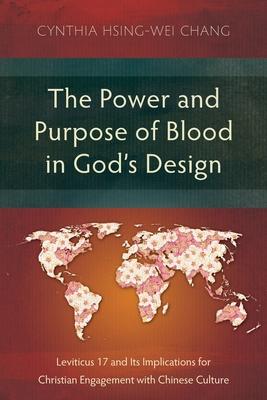How can Christians delve into the relationship between biblical law, narrative, and rituals to reconcile beliefs with cultural heritage? In this study, Dr. Cynthia Hsing-Wei Chang addresses the unfamiliar and impractical nature of Leviticus's ritual teachings for Christians, particularly in the context of Chinese culture's common practice of eating cooked blood pudding. Combining principles from biblical laws and rhetoric to distinguish Leviticus's literary structure, this book examines well-being offerings in the Old Testament and Ugaritic sacrificial documents, and explores the meaning of blood atonement in rituals to provide a comprehensive theological response. By bridging ancient rituals and modern culture, Dr. Chang offers unique insights for cross-cultural understanding and practical guidance for those seeking to navigate cultural complexities while honoring their faith.

The Power and Purpose of Blood in God's Design: Leviticus 17 and Its Implications for Christian Engagement with Chinese Culture
How can Christians delve into the relationship between biblical law, narrative, and rituals to reconcile beliefs with cultural heritage? In this study, Dr. Cynthia Hsing-Wei Chang addresses the unfamiliar and impractical nature of Leviticus's ritual teachings for Christians, particularly in the context of Chinese culture's common practice of eating cooked blood pudding. Combining principles from biblical laws and rhetoric to distinguish Leviticus's literary structure, this book examines well-being offerings in the Old Testament and Ugaritic sacrificial documents, and explores the meaning of blood atonement in rituals to provide a comprehensive theological response. By bridging ancient rituals and modern culture, Dr. Chang offers unique insights for cross-cultural understanding and practical guidance for those seeking to navigate cultural complexities while honoring their faith.